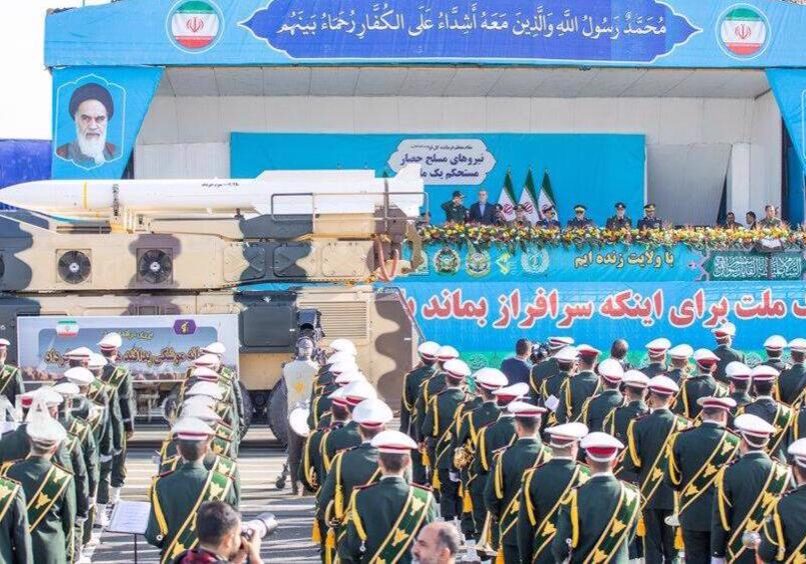Australia/Israel Review
AIR New Zealand: Diplomacy in a time of Pandemic
Aug 26, 2021 | Miriam Bell

It’s not easy doing diplomatic business during a global pandemic, and that has made for some challenges for Israel’s new Ambassador to New Zealand, Ran Yaakoby.
While New Zealand’s relative success in dealing with COVID-19 means that life in the country has mostly continued as normal, the Ambassador noted that closed borders and quarantine requirements had put a halt to visitors as well as business and trade delegations, “And that’s not helpful to the bridge-building process.”
Yaakoby, Israel’s fourth ambassador to New Zealand since Israel reopened its embassy in Wellington in 2010, has been forced to look for other ways to encourage and facilitate engagement.
One of Yaakoby’s first actions on taking up his new post at the start of this year was to reach out to New Zealand’s Government to offer to share information and experiences regarding the pandemic.
Israel did not do well with managing COVID last year, but worked hard on the vaccination front and succeeded in leading the world in vaccination rates, he noted. “In contrast, New Zealand has lagged a bit in its vaccine rollout. So we approached New Zealand officials and supplied data and information on the many lessons learned in our rollout.”
One lesson he cited is the need to take cultural differences into the equation. In Israel, Bedouin Israelis did not want to come into the centres to be vaccinated, so vaccinators had to go to them with the necessary technology. It is a lesson relevant for New Zealand as Maori, particularly in rural areas, also suffer from low vaccination rates.
Sharing this information was an example of how the two countries, which have much more in common than most people realise, could work together in the future, Yaakoby said.
“New Zealand and Israel are members of the same club. They are both small but advanced economies, which value higher education. And, as such, one thing I hope to do is get more collaboration going on research as we have interests in similar areas, like agtech, maptech, AI and cyber-security.”
Israel is particularly strong on linking the lab to the market, while there is a greater focus on pure research in New Zealand, Yaakoby said. “Our emphasis on usability, what we can yield from the research and how the money that goes into the research finds its way back to the public is something New Zealand can learn from.”
But, in turn, Israel could learn from the way New Zealand invests in its students and the greater work-life balance Kiwis tend to have, he said.
Further down the COVID-19 track, he hopes there could be a travel bubble that allows countries who are of a similar status with regards to the virus to travel freely. That would allow for proper diplomatic missions and also the exchange of international students and workers.
“Ultimately, it’s all about trying to understand where there is room for relationships and collaboration, and then finding ways to best work together. It needs to be a two-way street though: we have an embassy here, so it would be great if New Zealand was to have an embassy in Israel too.”
Yaakoby said he would love to see this happen as, traditionally, New Zealand had been a supporter of Israel and continues to deploy personnel to peacekeeping operations in the Golan Heights and Lebanon.
However, during the conflict between Israel and Gaza earlier this year, he realised that New Zealand not only had a very vocal anti-Israel brigade, but that a lot of Kiwis did not know much about Israel and its history.
“Often people need to be vocal if they don’t have the whole truth. They need to scream out loud to get their view across. That’s not usually the Kiwi way, yet, when it comes to Israel and the Palestinians, it seems to be acceptable.”
But while there is a vocal minority out there, it was necessary to ask what the majority thinks, he said. “Importantly, when I meet Kiwis, be they business people or Maori or from another community, there is an understanding and, if not, a willingness to learn.”
Yaakoby said it would be great if more of the majority was willing to stand up for Israel, but he wanted to thank the organisers and attendees of the demonstrations in support of Israel that took place during the conflict. “The people involved weren’t just Jewish, there were Kurds, Iranians, Maori, and many others. It was encouraging to see.”
Looking to the future, he emphasised that an innovation agreement between Israel and New Zealand has already been agreed on by both governments and would help boost the relationship. “While it needs to get a final sign-off from the Israeli Government, which has proved difficult due to election turbulence, it has the green light. It’s there in words, we just need to be able to act on the ground.”
Tags: Israel, New Zealand






